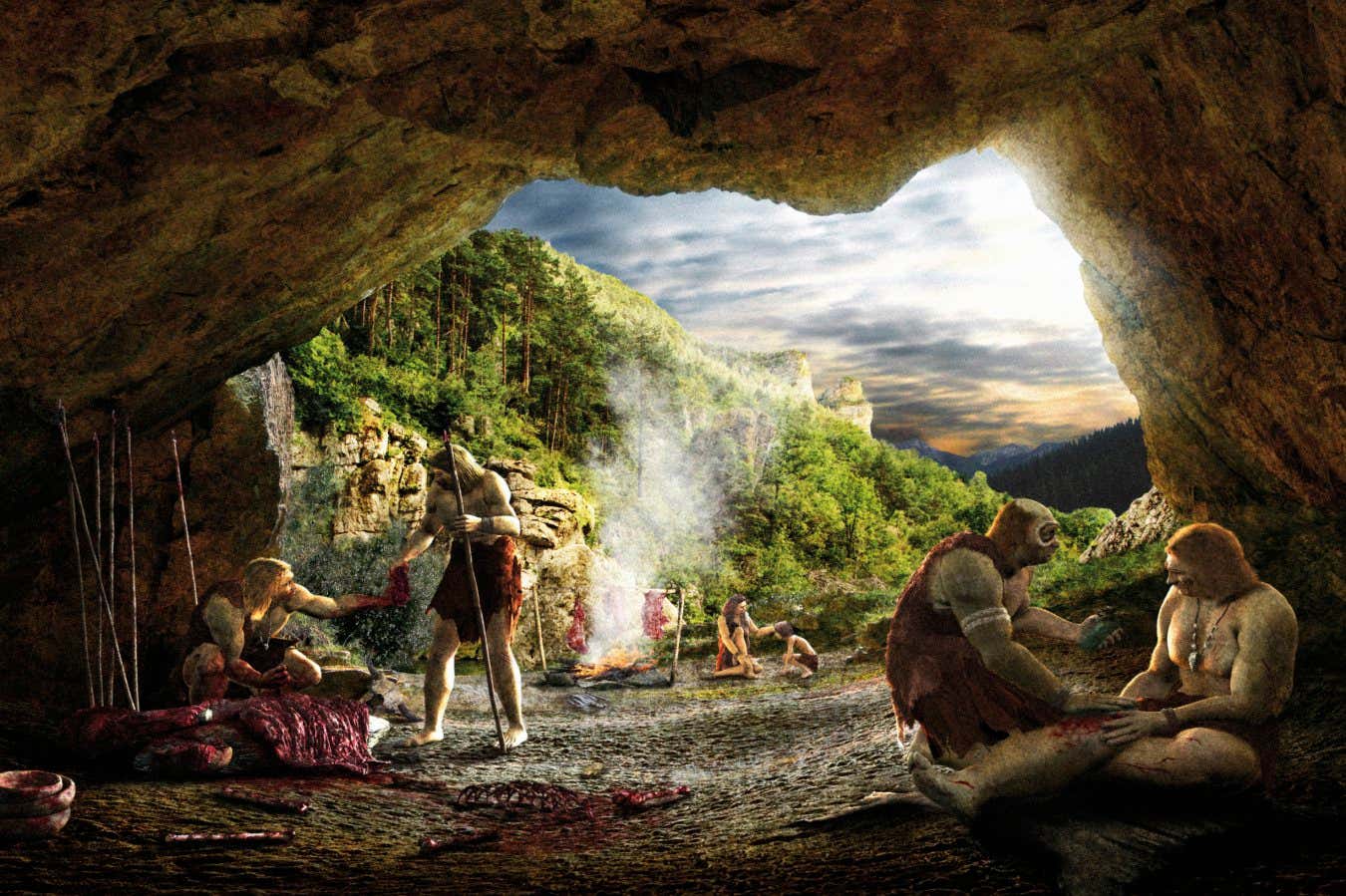An ancient human site in Germany features animal bones that were smashed into small pieces and heated to extract fat 125,000 years ago, showing that Neanderthal culinary skills were surprisingly sophisticated
By James Woodford
2 July 2025
Neanderthal culinary skills were more sophisticated than we thought
GREGOIRE CIRADE/SCIENCE PHOTO LIBRARY
Neanderthals were processing animal bones to extract fat from them 125,000 years ago, nearly 100,000 years before modern humans were known to do anything similar.
The evidence comes from an extraordinary lakeside site at Neumark-Nord in eastern Germany, where over 100,000 fragments of bones from at least 172 individual animals have been found. The remains include horses, bovids, deer, foxes, big cats and an extinct two-horned rhinoceros.
Read more
A cave in France is revealing how the Neanderthals died out
The bones had clear signs of being smashed into small pieces and heated to liberate the grease from the spongy tissue inside them. This fat would have provided a less-perishable, easily transportable, high-calorie food that would have been highly prized by hunter-gatherer groups.
Wil Roebroeks at Leiden University in the Netherlands and his colleagues, who carried out the study, describe the location as a “fat factory” that seems to have been used intensively for only a short period. “The fragmentation of the bones is clearly anthropogenic, not the result of carnivores or geological processes,” he says.
While there is no direct evidence that Neanderthals were responsible for the butchery, they were the only known humans in Europe at that time, says Roebroeks.
